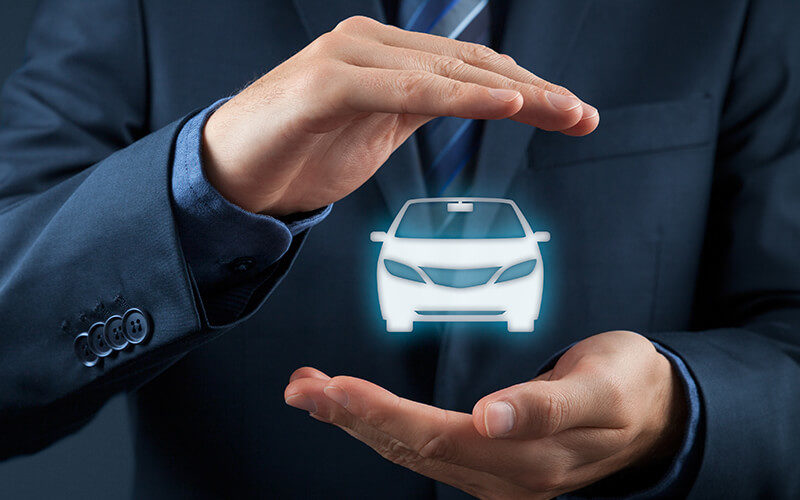Vehicle insurance as the term itself is suggestive, is an insurance product that covers the financial risk of vehicle damage. It is also called auto-motive/auto insurance or motor insurance. The policies include four-wheelers, three-wheelers like autorickshaws, and two-wheelers.
How does Vehicle Insurance Policy work?
The vehicle insurance is provided against the damage that may occur due to accidents, third-party damage, traffic collisions, and collisions with other objects. Vehicle insurance sometimes also provides coverage for damage due to weather conditions or natural disasters. Vehicle insurance includes car insurance, bike insurance, and commercial vehicle insurance that are not for personal use. Commercial vehicles include auto-rickshaws, ambulances, taxi/cabs, agricultural vehicles, multi-utility, or other light vehicles. It also includes heavy vehicles like trucks, buses, etc. that are not for personal purposes.
All insurance products spread the risk and associated costs among multiple people. These people have exposure to risk and pay premiums to claim insurance when required. Insurance providers pool in the risks and therefore the premiums from the policyholders and also invest it to generate more wealth. They pay out the insurance money when few claimants raise insurance demand from the accumulated fund from premium payments and their re-investments. Similarly, various vehicle owners get insurance for their automobiles through policies of car insurance, bike insurance, etc. Insurers assemble a huge corpus from policyholders and they pay out the insurance money to those who claim from the same corpus amount. This evenly distributes the risk and the costs among various policyholders.
Coverage Provision
The coverage provided depends on the amount of insurance chosen by the vehicle owner and the conditions laid by the insurance provider. Also, the specific terms of a vehicle insurance policy differ from the legal regulations of different regions. Vehicle insurance policies provide three main kinds of coverages as below:
- Property Insurance – This covers the damage that happened to the vehicle in an accident or collision if there is any missing part of the vehicle due to theft, and if there is any loss of personal belongings from the vehicle
- Liability Insurance – The public liability arising out of the damage caused by third parties either in a collision or in an intentional act
- Medical Insurance – The costs of treatments of the owner/driver if s/he meets with an accident or collides on the road. Vehicle insurance policy takes care of the medical expenses for injuries and rehabilitation. Sometimes, the lost wages or funeral expenses may also be claimed
Based on the coverage and other factors, the insurance providers decide the premium that the policyholder pays. Factors that affect the premium are, the size of the insurance coverage amount, the geographical location (premiums are higher in urban areas), and vehicle type/conditions (age of the vehicle, model, engine number, type of fuel, etc.).
Exclusions & Clauses to Vehicle Insurance Coverage
There are certain terms and conditions for claiming coverage under a vehicle insurance policy. Certain situations are excluded and not covered by the policy such as:
- There is no cover provision for underage drivers or if you drive without a license
- There is no insurance cover if you drive under the influence of alcohol or drugs and meet with an accident
- Damage that happened during a war/nuclear attack
- Damage that happens due to aging of the vehicle, wear & tear, no/low maintenance, or mechanical failure/breakdown
- Any reason that is not listed in the vehicle insurance policy mentioned as ‘exclusion’ or ‘not covered in the policy, or has a certain clause to it, is not covered
You may not be able to get the insurance amount when there is a clause to any condition which will disqualify your claim. Also, in case of not meeting with the terms required.
Types of Vehicle Insurance Policies
Different kinds of policies cover up different kinds of losses. For example, a particular vehicle insurance policy may cover up for accidental damage but not theft. Similarly, the policies for car insurance and bike insurance may vary. The various types of vehicle insurance policies are:
1. Third-Party Insurance
This type of vehicle insurance policy safeguards you against any damage or injury caused by a third party. This does not cover the accidental injuries/damages caused by the own fault of the owner/driver or theft. The premium of a third-party vehicle insurance policy is usually lower than others.
2. Own Damage Insurance
There can be a loss to a vehicle or parts of it due to theft, natural causes like fire, weather conditions, etc. It can also occur as a result of man-made problems like vandalism, riots, and the like. Own damage policy covers these damages and repair costs as well as the costs of repair/loss of belongings in case of accidents.
3. Comprehensive Damage Insurance
This policy includes the financial cover for both the third party liabilities as well as own damage. It is a comprehensive policy that offers in-depth protection against various kinds of damage and end-to-end coverage. It also has a deductible and a higher premium.
4. Collision Insurance
This type of motor insurance policy provides cover for the damage that occurred because of a collision with a stationary object or another automobile on the road. It covers damage from potholes or the rolling of the vehicles. No coverage if there is car breakdown or damage due to wear and tear. However, the own damage policy usually covers these costs.
5. Additional Policies
Apart from the main types of covers discussed above, there are other types of motor insurance policies that the insured can take as add-on policies. Glass Insurance (under car insurance) covers the costs of damage to the glass of rear/side windows and sunroofs. Engine Protector Cover is insurance for the expenses that you may incur on the repair of the engine post water ingression or oil/lubricant leakage. Consumable Cover is an insurance cover for consumable items like washers, AC gas, bearings, engine oil, fuel filter, etc. There are Gap Insurance Policies or Depreciation Covers that cover the depreciation cost (the gap between the actual cost and the current market value) of the vehicle at the time of the claim.
Benefits
The benefits that these policies offer are listed below:
- It covers for theft/robbery of the vehicle or its belongings
- Vehicle insurance provides coverage for damage and repair costs due to accidents, collisions, and calamities
- It protects the third parties, which otherwise would be a tedious task to prove and claim money or get into a legal battle
- These policies cover physical injuries as well
- It provides insurance money in case of the death of the driver
Wrapping it up:
Auto insurance or vehicle insurance is important irrespective of whether the advantages of the policy lure the motor-vehicle owners or not. Third-party insurance is mandatory by the laws of the Indian government for all new automobiles in India. Whether they are for personal use or commercial purposes, light or heavy vehicles, the third-party policy is a must. One must buy an insurance policy for their automobiles and renew the plan once it expires, or else it is punishable. Insurance companies have tie-ups with manufacturers and you get various insurance quotes for your vehicle right at the time of purchase. One can buy a new motor vehicle only when it is insured.








